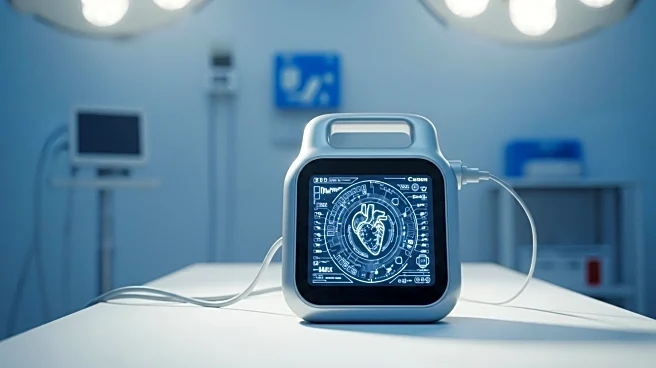What's Happening?
Johnson & Johnson's subsidiary, Abiomed, has initiated a recall of the user interface for its Impella catheter-based heart pumps. This action follows an alert issued by the Food and Drug Administration (FDA) concerning potential blood flow interruptions or loss of heart support associated with the device. The recall is linked to one reported death as of August 12, 2025. The Impella heart pumps are designed to assist patients with heart conditions by maintaining blood flow, and the recall specifically targets the Automated Impella Controllers, which serve as the user interface for these pumps. Johnson & Johnson acquired Abiomed in December 2022, expanding its portfolio in the medical devices sector.
Why It's Important?
The recall of the Impella heart pump interface is significant due to its potential impact on patient safety and the reputation of Johnson & Johnson in the medical devices industry. The reported death underscores the critical nature of the issue, prompting immediate action from both the company and regulatory bodies. This development may affect healthcare providers relying on these devices for patient care, potentially leading to increased scrutiny and regulatory oversight in the medical devices sector. The recall also highlights the importance of rigorous safety standards and monitoring in the development and deployment of medical technologies.
What's Next?
Following the recall, Johnson & Johnson and Abiomed are expected to work closely with the FDA to address the identified issues and ensure the safety of their heart pump devices. Healthcare providers using the Impella pumps may need to seek alternative solutions or await further guidance from the company and regulatory authorities. The incident may lead to increased regulatory scrutiny and potential changes in safety protocols for medical device manufacturers. Stakeholders in the healthcare industry will be monitoring the situation closely to assess the impact on patient care and device reliability.
Beyond the Headlines
The recall raises broader questions about the safety and reliability of medical devices, particularly those critical to patient survival. It may prompt discussions on the ethical responsibilities of manufacturers in ensuring device safety and the role of regulatory bodies in preemptively identifying potential risks. Long-term, this incident could influence industry standards and practices, leading to more stringent testing and monitoring requirements for medical devices.









